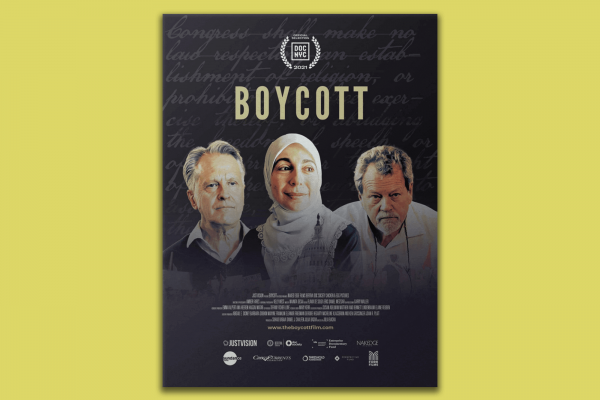FROM THE BOSTON Tea Party to the Montgomery bus boycott, expressing patriotic dissent by withdrawing support from goods, services, people, or structures has long been an integral part of our American democracy.
So, when Alan Leveritt (publisher of the Arkansas Times newspaper), Mikkel Jordahl (an Arizona attorney who provides legal services to incarcerated people), and Bahia Amawi (a Texas public school speech pathologist) were asked in separate incidents to certify that they would not “engage in boycotts of Israel” as a condition of doing business with or being employed by their states, they were troubled. Leveritt, Jordahl, and Amawi each decided to defend their First Amendment rights and push back on legislative efforts that have the potential to outlaw peaceful political boycotts related to a variety of issues.
Their stories are central to Just Vision’s new documentary, Boycott, which exposes the wave of anti-boycott legislation and executive actions in 33 states since 2015. These laws require Americans to give up their right to support the Boycott, Divestment, Sanctions (BDS) movement, a campaign formally begun in 2005 in Palestinian civil society to urge the international community to leverage economic influence to encourage the Israeli government to address its human rights record. (Some Israeli officials and others claim that BDS efforts challenge Israel’s right to exist and are inherently antisemitic.)
Read the Full Article

